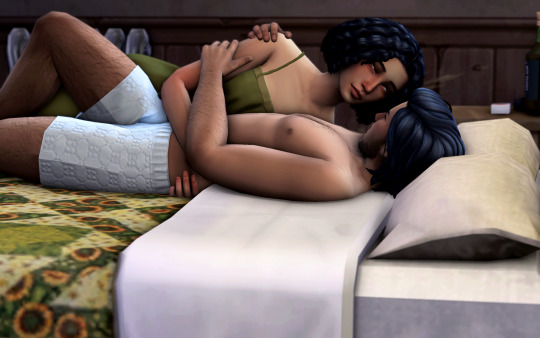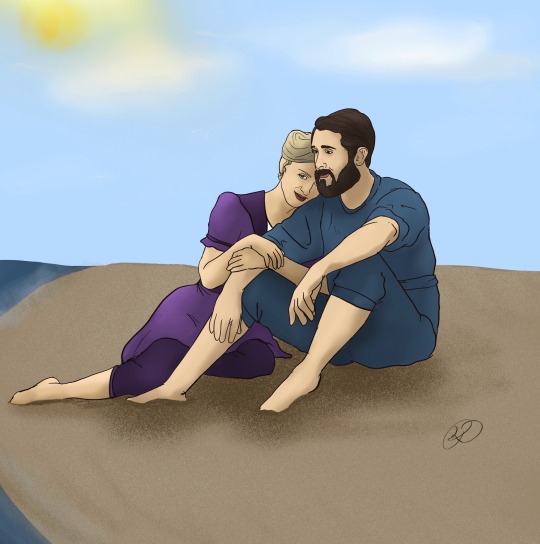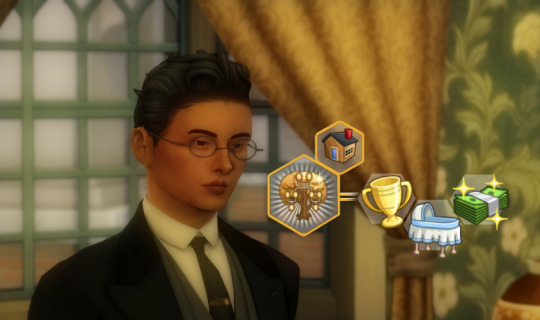#historical babe
Text
folks on this website always be like "omg why didn't they just TALK to each other why aren't they COMMUNICATING just tell them how you FEEL"
like any of y'all are confessing to your crushes instead of being on tumblr dot crying in memes lets all be so real here
#chaos pikachu speaks#naughty babe the series#kiseki: dear to me#cutie pie the series#are all things that come to mind regarding this lol#like have y'all read a single post on r/relationships?#ppl have historically terrible communication skills for a lot of reasons#characters aren't going to act 100% logically all the time#b/c that's not how people act
161 notes
·
View notes
Text
"you can't call Babe a pretty little princess–"
My sibling in christ, the man spent his childhood being used as a political bargaining tool who was expected to one day be auctioned off to bear someone's children (holy shit that's depressing) and to top that off, he's now married to a dude called CHARLES. I honest to god dare you to try and find a more on the nose definition of the word princess.
#like he has spent his life being treated like a princess in the depressing historically accurate way#he deserves to let charlie treat him like one in the fun fairytale way#pit babe the series#charliebabe#pit babe brainrot#cerys rambles
82 notes
·
View notes
Note
which era is Arthur's most attractive? Personally I think it's Edwardian
Fantastic choice! Early 20th century? You got taste!
Mine would be the late Victorian era FOR SURE! Old man with his dumb little kids pretending to be a lord, a gentleman.
Arthur is most atractive when he's sitting at his grand dining room for breakfast at the even more grand table reading the newspaper and forgetting his cup of second-favourite tea in favour of reading the latest gossip he swears is only for old sculery maids with far too few work hours. He is attractive when he is recieving letters and taking his letter opener that served in more than just opening letters in Arthurs hands. Arthur is trying to read the letter and is clearly struggling. He comments that the senders handwriting is worse than his wayward sons when he was but mearly 7 years old. Tho he is experienced and manages to read it, only to toss it into the fire. What was in the letter? No one ever found out, only it made arthur angry enough to destroy it, but not angry enough to show the anger, or any emotion, on his face. He is attractive when he is recieving aristocratic guests and is waiting outside his country home for the carrige to arrive, clearly irritated and in desperate need and want to go back to his bed chaimbers and attend to his other, uninvited and irritating, yet very familiar guest.
Wait did i write attractive there? I meant lame.
Yeah.
#hetalia#hws england#arthur kirkland#ask meli#historical hetalia#you are so correct babe edwardian is peak arthur
73 notes
·
View notes
Text


Even a toxic love has its moments…. 🎶
(Alternatively titled: bonus half-clothed Gio for the stans 😙)
#help I love them#and like I know I shouldn’t#I know I know I know#BUT#look at THEM#literally an autonomous gameplay interaction#which to me reads as Jo will not get outta bed so baby boy lies right back down with her 😩#just about shed a small tear#the toxicity babes I’m barely even writing it at this point#sims 4 historical#ts4 decades challenge#sims 4 decades challenge#ts4 historical#sims 4 story#ts4 story#Josephine Duplanchier extra#Giorgio Mistretta extra#the darlingtons
54 notes
·
View notes
Text
Rules
Pets of the Silver Screen masterlist
Taglist: @maracujatangerine @clairelsonao3 @whumplr-reader @whumpinggrounds @bbu-on-the-side

Multiple times over the years, Agatha learns the rules.
2.1k
CWs: BBU, pet whump, kidnapping, collar, beating, stress positions, dehumanisation, non-con nudity (non sexual)
Agatha juts her chin out, poise perfect despite the tip-toe position she's been forced into.
"My name is Miss Agatha Stanbury, daughter of Lord Kenneth Stanbury. Let me go and you may get out of this alive."
Foster Montgomery smirks, pressing his knife into her neck, blood beading along its edge.
"I think I'd rather keep you. Nobody's going to find you, certainly not after I'm finished with you." He drags his knife down her front, slitting her clothes. They mostly stay on, but it must be a very sharp knife to manage that. "Take them off."
"No."
He holds up the knife, reminding her. "What did you say?"
Agatha swallows but keeps her poise. She's going to be an actress, she can pretend she has nothing to fear.
"I said no. You have given me nothing to wear afterwards and I will not follow your disgusting commands."
"I have more suitable clothing for you later, if you earn it. But if you won't obey willingly I'll have to do it for you."
Agatha's barely had a chance to process the statement when she's slammed to the ground. All her bones are jarred and her nose explodes with agony. A boot seems to grind her into the floor as Montgomery removes her clothing piece by piece.
She hates herself for thinking it, but at least he lets her keep her knickers.
He grunts in satisfaction, and hauls her to her knees. She shoves his hands away and stands, but is back on her knees in less than a second.
"Stay." He reaches behind him and picks up a leather collar complete with tag.
Agatha doesn't move when he reaches out and buckles the suffocating leather around her throat, but not out of obedience. She just doesn't think she can.
She reaches up to touch it, but Montgomery smacks away her hand before she can.
"Don't even think about it. I'll only ever remove it if you need a punishment that might interfere with the collar somehow, so if you do so yourself I'll assume that's what you're after. But you do still deserve a punishment. Bend over."
Agatha swallows hard, the soft leather and cold metal buckle pressing against her throat. She doesn't move. She only came down for the season, she's not going to obey a kidnapper who's apparently obsessed with turning her into a pet.
He couldn't find a volunteer? There's enough of them.
She pitches forward onto her hands and knees as he pushes her over, pulling her knickers down.
"Bare flesh is best for this. Pets obey. They don't say no. They don't talk back. You need to learn this."
Agatha has never had such a thrashing in her life as she receives then. No-one's ever drawn blood before. She's not passed out enough by the end to receive a reprieve though – he orders her to clean the house, and woe betide her if he finds a speck of dust or blood.
She experiences it all as if from miles away. As if from the gathering she's supposed to be at right now, with entirely different rules. She's not in her body, most of the time, and that's probably for the best.
That day and the next, she learns the rules of being Foster Montgomery's captive.
1) Don't say no.
2) Only speak when spoken to.
3) Don't talk back.
4) Address other people as sir or ma'am.
5) Always obey immediately.
6) Don't remove your collar.
7) Punishments are always deserved, always hard, and given at the slightest provocation.
She adds an extra one from herself, too, which she knows is true. Montgomery giving her a collar is not just him being a sick bastard, it's theatre, another part of the pretense. Because even if he were to parade her in front of those she loves, everyone knows that only pets wear collars.
8) No-one's coming to my rescue. I'm not getting out of here unless I do it myself.
Over the next few months, the rules don't change. The chores are hard, and the punishments harsh, and a lot more of her is scarred now. Very little of what Montgomery does has any logic to it.
But she still can't find an escape. She fears she's sinking into it.
_
When she's hired by Hayes Fletcher, more rules are added to the list.
9) Don't talk to the other pet.
10) If you disobey, it won't just be you who's punished.
Eloise won't receive whippings, of course, and no canings during the shoot, but she can be put in stress positions, or starved, or have a bucket of water dumped over her head before being left in the unheated studio overnight. And Agatha has absolutely no desire to subject her to anything other than a good hot meal and somewhere better to sleep.
_
Rule 7 is underlined dramatically by the inspector's visit. In the aftermath, Agatha's arm and back throbbing, blood pooling on the frozen stone floor that her toes are just able to touch, Eloise whimpering from her own position, Agatha makes sure to add another two rules to herself (though the second is altered after Eloise's angry objections).
11) Don't talk about the situation to outsiders. It will only make things worse.
12) Don't break the rules. Even Only if Eloise agrees to do so.
_
Agatha could possibly escape during the transatlantic crossing. She thinks about it. Even jumping overboard might be better. But she needs to see Eloise again. Be sure that she's alive and physically unhurt (from the sinking at least, Agatha has no doubt she'll have been hurt since). Tell her that she's brave, and a hero, because if it had been anyone but fellow pets she'd saved, if she was anyone but a pet herself, her actions would've been lauded, but instead it's Hayes Fletcher who's being praised for having such a good pet. Which isn't right, it isn't fair, and Agatha can't leave Eloise on her own.
That's when Agatha solidifies the last rule for herself, that's been brewing since she first met Eloise but she's never stopped to think about it before.
13) Her and Eloise only have each other, and will always have each other.
_
Then the Great War comes.
Foster Montgomery signs up to fight. He leaves Agatha in Hayes Fletcher's care, who lends her to the munitions factory, for good publicity and probably money (money for Fletcher? Money for Montgomery? She doesn't know. But neither man is big into philanthropy). Eloise isn't there. Agatha follows the rules Montgomery has already given her, hating the fact that they keep her alive.
Another few rules are added.
14) Don't become emotional.
15) Never make a sound.
16) Just because you're working alongside people, doesn't mean you are one.
That last is... profoundly obvious, at times. When the rest of the workers get to go home at the end of their shifts and she is kept working, or if there's no-one else at all, locked in the breakroom until morning. When she's fed less than the others, or when she's beaten, or–
It's so obvious, even more so than when she was hired by Hayes Fletcher. She hates it. And she's so alone here.
The war will be over by Christmas, right?
_
1915. Foster Montgomery is dead, and Agatha desperately wishes she could thank his killer, if anybody even knows. She gets a new tattoo, signifying her ownership by Hayes Fletcher (luckily, she knows his rules, there's no new ones to learn there). The Munitions Act comes into force, and the regular bombing raids start.
Monkey's paw. She's not alone anymore, but it means that Eloise, and several other pets, have joined her in the munitions factory.
She teaches Eloise what she's learned about staying out of trouble where possible. They have a dedicated bunkroom now, pets crammed in on old bedding on the floors of the worst-maintained rooms. They learn that only a few owners have paid for their pets to be taken to air raid shelters.
Hayes Fletcher hasn't.
Night after night they spend, trying to stay calm as bombs rain down around them. Occasionally they're still chained or tied up at night, for punishments, and when that happens Agatha worries the most.
She learns one more rule.
17) Sometimes all you can do is pray.
_
The war ends. By a miracle, her and Eloise are both still alive. Hayes Fletcher goes back to producing films, albeit with less success. Agatha watches as pet liberation campaigns grow, and the next decade approaches with force. The world seems a little more hopeful, things seem to be changing.
Except for her and Eloise. Stuck with the horrible, spiteful little man, punishments getting worse as he gets more frustrated and blames them for it (or maybe he simply has nowhere else to put his anger). The world's moving on, votes for women are coming, and she can't help but think of what her life might be like if she hadn't been kidnapped all those years ago.
She remembers rule 7. And the last time was dreadful, and another attempt could get them both killed, but she mentions her rule to Eloise one night and Eloise agrees. They have to try, don't they? Sometimes, it's the only thing you can do.
A week later, the film studio burns down in the middle of the night. Arson, probably. By the time the fire brigade arrive to the burnt out husk Agatha and Eloise are already sneaking onto a train to London.
_
"If the both of you want rules, I can give you some," says Ira, clearly reluctant, "as long as we can go through the ones you already have first. Is that all right?"
"Yes, ma'am."
Ira nods. "Why don't you write me a list then? We can go through them while Eloise is busy."
Agatha takes the paper and pen she offers, wincing as she sits down, heart skipping a beat. She's still not used to it.
At the end of the session, her list reads:
1) Don't say no.
2) Only speak when spoken to.
3) Don't talk back.
4) Address people as sir or ma'am.
5) Always obey immediately.
6) Don't remove your collar.
7) Punishments are always deserved, always hard, and given at the slightest provocation.
8) No-one's coming to my rescue. I'm not getting out of here unless I do it myself.
9) Don't talk to the other pets.
10) If you disobey, it won't be just you who's punished.
11) Don't talk about the situation to outsiders. It will only make things worse.
12) Don't break the rules. Only if Eloise agrees to do so.
13) You and Eloise only have each other, and will always have each other. (Ira says she can get rid of this one partially too, but she's not so sure. Not yet)
14) Don't become emotional.
15) Never make a sound.
16) Just because you're working alongside people, doesn't mean you are one.
17) Sometimes all you can do is pray.
The new rules are easy, and straightforward, and Agatha doesn't entirely trust them. The list now reads:
1) You belong to yourself.
2) You will never be punished, no matter what you do.
3) You and Eloise only have each other, and will always have each other.
4) Sometimes all you can do is pray.
_
Agatha kneels on the floorboards, trembling. It's her turn today, Ira asked her to clean and she said yes, she's not sure why except she's so used to not being allowed to say no.
She hopes she's done well. She hopes she's done well. She hopes she won't be punished.
Ira doesn't do punishments. But all the same, she hopes she won't be punished.
There's footsteps, then they stop.
"Agatha?"
"I've finished cleaning, ma'am."
A hand on her shoulder. "Agatha, please look at me. I'm not going to hurt you, I promise. Come on, look up."
Agatha obeys hesitantly. And gasps. Ira's eyes are dark and warm and how could Agatha ever have thought otherwise? Ira gets down to her level as Agatha grasps her hands tightly, pulling her into a rare hug.
"Rules one and two, Agatha."
"I belong to myself," whispers Agatha, still clutching Ira tightly, "and I will not be punished."
Ira's two rules. The only two she'll ever make.
1) I belong to myself.
2) I will never be punished, no matter what I do.
And there's a third, that Agatha has added herself, that she thinks she probably can after so long. Rule number 5, now Ira has been proven correct and number 3 has been partially removed (Agatha does not only have Eloise now).
5) Ira keeps her promises.
#whump#whump writing#bbu community#bbu#box boy universe#box babe#multiple whumpees#pet whump#kidnapping#lady whump#whumpee and whumper#whumpee and caretaker#pets of the silver screen#agatha stanbury#foster montgomery#ira waterhouse#not happy with the list formatting but nvm#historical whump
30 notes
·
View notes
Text

“By the sea…”
#by the sea#sweeney todd#mrs lovett#sweeney todd revival#sweenett#nellie lovett#no stripes here babe#this is all so historically inaccurate I’m sure but whatever
28 notes
·
View notes
Text
World War III this, World War III that, I CANNOT with you all, especially Americans.
Because IF a third world war breaks out, it isn’t going to affect you directly. The influx of stupid jokes, destiel memes about Poland being bombed is outrageous to me. And not even this, two missiles exploded on the border to Ukraine, so it’s very much uncertain what really happened, who launched them, whatever. Two people died and you folks come on here joking and being “scared” you could be involved in a bigger war, but guess what, you won’t be affected or rather BOMBED like Poland and other neighboring countries. You will be SAFE at home. So, I am begging you, if you are not directly affected by todays events, zamknij twoją wielką mordę.
#poland#fucking hell#the memes are not it#people die and are affected by this and you dare coming on here being like ‘oh no I don’t want to be involved in major historic events 🥺’#and babe you are not#cause guess what#you will be sleeping safely at home#but people in my country are going to sleep restless with the fear of Russia invading in the near future#fuck you#fuck you and I hope you choke on these stupid jokes#ukraine#Russia#Poland bombing
235 notes
·
View notes
Text
Babe wake up, new Laurens coded TikTok trend has dropped!
(Army Dreamers - Kate Bush)
#amrev#amrev fandom#american revolutionary war#historical john laurens#john laurens angst#john laurens#lams#angst#tiktok#tiktok trend#army dreamers#babe wake up#its so him coded
15 notes
·
View notes
Text
if you see a post that contains some historical writing or art by or related to trans women and your first instinct is to comment or share it and make it about gerard way, maybe consider not doing that
#by historical I mean anything in the past to clarify#like babe. this drawing from the 90s of a trans woman with nice legsis just that. sometimes you have to be normal and not make every gender#thing you see about your fave. esp one that you like to pretend is some pioneer when it comes to being gnc in the music industry (he isn't)#I do say this as a long term mcr and gerard fan! you just need to like ... remember that trans women are real and not your fun idea to+#project on people. and that gerard way is a real person that you don't have the right to project identities on as if they were fact either!
15 notes
·
View notes
Text
Me trying to write Thomas Cromwell without making my attraction to chubby men TOO obvious

7 notes
·
View notes
Text


University of Britchester's newest graduate, Patrick Crale has landed a job at an imports/exports firm in the bustling port town of Brindleton Bay. But this is just the beginning for him. With a mind sharp as a tack and a will of iron, he's ready to climb the corporate ladder, build a dynasty, and make the Crale name synonymous with power and success.
Patrick is the founder of my current save which I hesitate to call a Legacy or Decades challenge since its more of a test run of a semi-gameplay based challenge I am writing that does take aspects of the Legacy challenge. It involves some aspects of luck/rng (I am using rolls for deaths, pregnancies, war, and other life events) and a scoring/points system (which will be a secret known only to me) but I also have a narrative sorta planned out for this current save. I'll probably write more as I work it out.
Also it begins in 1910s because I want it to hence why its not a proper Decades challenge.
#sims 4 story#ts4 decades challenge#ive already played a bit in and i dont like him :/#always complaining abt my house i built for him like if u want a nicer house focus on getting that promotion babe <3#ts4 legacy#sims 4 historical#ts4 story#crale legacy
20 notes
·
View notes
Text

🪕 As the train moves onward and we closer to our destination, please enjoy more musical accompaniment to get into the spirit of our new decade….
#again an apology for my desktop babes for the Spotify link being massive#sims 4 historical#ts4 historical#ts4 decades challenge#sims 4 decades challenge#sims 4 legacy#ts4 legacy#sims 4 story#ts4 story#the darlingtons#1930s
49 notes
·
View notes
Text

29 notes
·
View notes
Note
hi! i was reading an article on fashion history today, specifically the 1840s, and it seemed to focus heavily on the idea of clothes relating to female oppression. i was wondering your opinion, if you have the time?
the article is here, https://fashionhistory.fitnyc.edu/1840-1849/
in particular, the article says “Women’s clothes became so constricting that her passivity in society was clear (C.W. Cunnington 135)”. i suppose i’m not entirely sure how valid that is? i’m just looking for another opinion, especially since i’m a complete amateur at fashion history. i know that you’ve talked before about some misconceptions around victorian womenswear, especially with corsets, so i’d love to know if this is of a similar vein to that or if it’s something different with a different background.
if you take the time to respond, thank you so much! i hope you’re doing well :)
This is. A very strange article, providing citiations for opinions as if they were facts. Like...why are you giving a citation for an interpretation of 1840s feminine clothing? I guarantee you won't find anybody in contemporary literature saying "ah yes, women dress like this because they are passive! that is the conscious reason we do this and we have all agreed on it." So it's not really a fact, is it? And therefore, why is it being cited as if it were?
They also seem very determined to believe that these clothes restricted movement to an unmanageable degree. While it's true that you can't bend at the waist easily in 1840s stays, you can still bend at the hips or kneel down. Preventing you from moving in one very specific way doesn't necessarily prevent you from accomplishing the same action with a different movement. It's also bizarre because they talk about women of limited means having access to fashion via ladies' magazines, but don't carry that through to its logical conclusion: working-class women wore similar clothing styles to their upper-class counterparts. And therefore were also wearing stays (practical applications thereof aside). And could ill afford to have their physical action limited. And therefore...? Maybe these garments weren't whalebone cages that kept women from living their lives, perhaps?
Also, this Cunnington fellow they cite for their FactPinions died in 1961. He was active primarily during the period of greatest disdain for all things Victorian- the early to mid 20th century. Are we examining those biases and comparing the opinions expressed therein to modern scholarship, World-Renowned Institution F.I.T.? No! Of course not! Why would we, when Everybody Knows Victorian women's clothing was horrible and restrictive and kept them from doing anything ever? Their society was highly misogynistic, so it must follow that every single thing about their lives was designed to actively oppress them! That's how human beings work, after all! Ahahaha! AHAHAHAHAHAHA!
[Marzi.exe has encountered an error. Please wait.]
Don't get me wrong, he was one of the founders of my main field. He and his wife saved a vast number of garments from being lost forever, and I appreciate that. But he was, as we all are, a product of his time- and that time just happened to absolutely loathe everything about the era he was examining. So I'm not sure why we're taking his word as gospel here- especially when it's not even hard fact.
Like, for example, he says that the scoop bonnets of the era acted like blinders for women, a "moral check" keeping them focused on "the straight and narrow path ahead."
Except. Mr. Cunnington.
Women can turn their heads.
You can just. You can look in another direction. You're not a horse in a head-rein when you put on a coal-scuttle bonnet, so it hardly keeps you from seeing "immoral" things. It is, quite frankly, Not That Deep.
Aaaaand there's the old bugaboo of children's corsets, with a direful comment that girls began "corset training" as young as ten years old. I've gone over this before but, whatever salacious literature of the day may imply, it was not at all common to waist-train young children. Indeed, most so-called "children's corsets" that I've encountered are more like lightly stiffened vests designed for posture support, and can't even be tightened.
There was also at least one very weird technical observation about clothing in here, which surprised me for a fashion school where you'd think at least one person editing their articles would have sewing experience: the comment that the tightly-fitted armsceyes (arm holes) of 1840s bodices kept women from raising their arms above 90 degrees.
I could be wrong, but in my experience a more fitted armsceye allows for MORE freedom of movement, not less. One of the biggest issues I've encountered- and heard other sewists complain about -with modern mass-produced garments is armsceyes cut too large. This may seem counterintuitive, but the principle is something like: Armsceye Cut Close To Armpit = Less Pulling On Body of Garment = Can Raise Arm Higher Without Disturbing Rest Of Shirt/Dress/Whatever. And for an extremely close-fitted garment like a Victorian bodice, that effect could mean that you really CAN'T raise your arm above your head. Trust me; I know this from having made the mistake too many times in my own historical sewing. Now, if the armsceyes were cut very small in general- high in the armpit but very low on the shoulder, too -that maybe could restrict movement somewhat. And I haven't examined many 1840s bodices; it's possible that's how the sloped-shoulder silhouette of the day was achieved.
But I really doubt that all women went around being unable to raise their arms above their heads given that, again, many of them had to work. And it seems weird that a fashion school would simply say "tight armsceyes Bad" without explaining themselves more specifically. Potentially, depending on what they meant, it's even downright ignorant.
In conclusion: the article is correct in a lot of specifics, like the shapes and silhouettes concerned, the trend towards historical inspiration and very subdued ornamentation, etc. It's just when they start trying to interpret the imagined Deeper Meaning of the garments, or extrapolate about the lived experience of wearing them without ever trying it/examining what women actually said about it in the period (or didn't; absence of discussion can be telling in itself) that it starts to go off the rails.
I also feel like it's emblematic of a larger issue within the field, namely: You Can Just Say Whatever The Hell You Want About Dress History And People Will Believe You. One might think academia would be immune to this and more rigorous in its fact-checking, but. One would be wrong. Probably because there have been so many myths floating around for decades, getting repeated over and over, never being questioned because- as I said above -everyone is very very ready to believe that the past was a total hellhole. And most of these myths bolster that image, so...why would anyone doubt them?
Besides the small, unimportant fact that, you know. They're not true.
I don't know. It definitely puts my professional imposter syndrome to flight, I can tell you that much.
#ask#anon#dress history#fashion history#victorian#long post#1840s#also of course there's the fact that dress history has only been a recognized field of study for. Not Long#(hint: It's Misogyny Babes)#(not that it's an entirely feminine topic or field obviously. men wear clothes too)#(and there are male and nonbinary dress historians)#(but. I don't think the fact that it's a topic traditionally associated with women can be overlooked here)#(in terms of its being brushed off and ignored by the wider historical field)
96 notes
·
View notes
Text
every other poster on the tube right now is advertising a new musical called ‘the time traveller’s wife’. for a blissful moment i forgot that a ‘wife’ is something that a heterosexual woman can be, and, believing it to be a beautiful lesbian tale akin to tihylttw, decided to google the synopsis to see if it was worth checking out. big mistake. ‘man first encounters his future spouse as a young girl, returns to kiss her at 18 and marry her in the future, remaining the same age as barely any time passes for him meanwhile she spends years alone pining for her distant angel’ blinks. what does that remind me of. oh yeah apparently this came before. i’m already suffering through series 5 at the current moment, so, plenty enough of that for years to come, thank you, and— what a surprise— the novel the musical’s based on was a primary inspiration for you-know-who’s weird fixation on this particular plotline. the worst part about the time traveller’s wife is that there aren’t even any cool steampunk clockwork droids or gorgeous 18th century french dresses to make up for the vomit-inducing implications. i have never been more disappointed. mind wipe, now
#in hindsight it’s funny how enamoured i was with tgitf when i first watched it. because i had in my inexperience considered it original and#clever. instead of a rehashed version of a story that already exists and is just as awful when you think about this ‘romance’ for over 2#minutes. and then he does it AGAINNN#babe wake up it’s beating steven moffat with hammers monday#so this is where the poison root spread from. i’m going back in time to erase the novel from existence so he never reads it. come up with#better ideas. also leave little girls alone#i still love tgitf but only for the reasons above. the aesthetic and the scifi aspect. and the tragedy i GUESS. kinda because for reinette#it’s a tragedy but for ten it’s literally like. five hours max#do you think he didn’t come back for her on purpose? he couldn’t bring her along because she was too important a historical figure? he left#her there despite promising to pick her up in five minutes. knowing full well she would be gone before he heard of her again#i bet he did that deliberately. had to keep her living in hope because he couldn’t refuse her but he couldn’t take her out of her own life#wow this post veered somewhere else entirely. sorry guys#doctor who#dw#the girl in the fireplace#the time traveler's wife#jamie.txt
9 notes
·
View notes